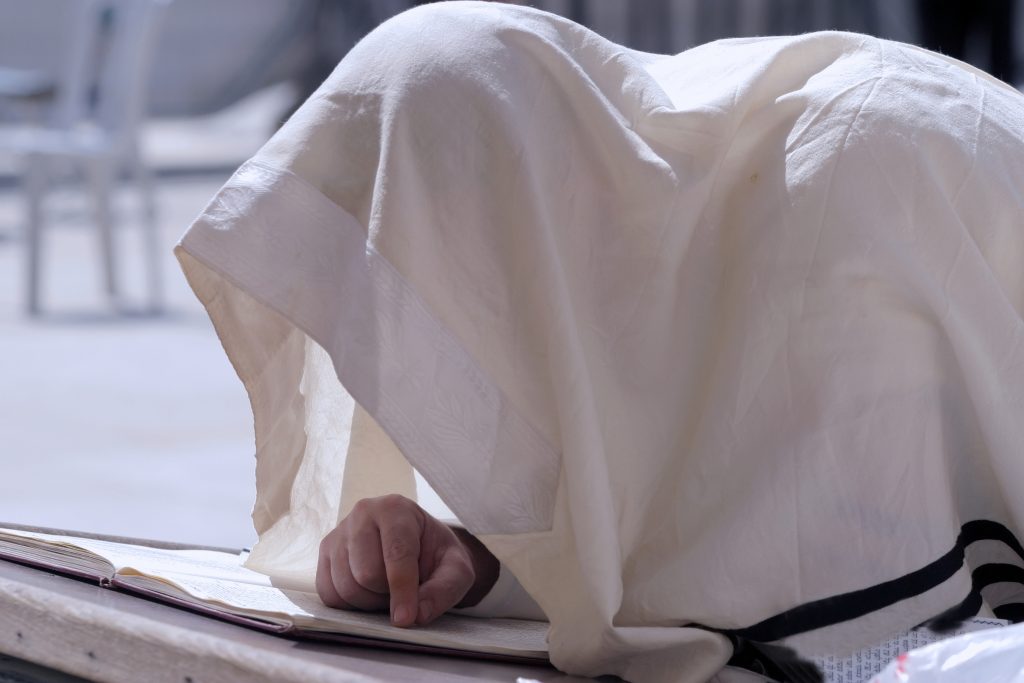
Did you learn how to pronounce Hebrew properly in yeshivah? If not, are you allowed to lead davening? And let us not forget those with speech impediments who cannot pronounce Hebrew properly. The Mishnah (Megillah 24b) raises the issue regarding leading prayers and Birkas Kohanim. Someone from Chaifah and Beis She’an may not lead because they confuse the alef and ayin sounds and the heih and ches. Rashi offers what could be understood as two reasons why they may not lead: 1) By using an ayin sound rather than an alef in Birkas Kohanim, they change the blessing into a curse. Additionally, 2) their mispronounced prayer is defective.
I. With Difficulty
Why does Rashi give both reasons? The Divrei Chaim (vol. 2, OC no. 10) suggests that Rashi is referring to someone who can pronounce Hebrew properly when he tries hard. Such a person would not be allowed to lead the congregation in prayer because the length of the service makes it extremely unlikely that he will be able to maintain his focus throughout. Birkas Kohanim is much shorter and such a person would be allowed to lead, except that the possibility of his accidentally cursing the congregation forces us to prevent him from leading as well.
II. His Way
Turei Even (ad loc.) offers a different explanation for the two reasons. He suggests that a mispronounced prayer is not defective for someone who normally speaks Hebrew in this improper way. That is how he pronounces the words. If this were not the case, then he would always need to find someone to recite prayers for him. However, when such a person leads the prayer services, which amounts to praying on behalf of others, then the mispronounced prayers are defective for the listeners. This does not apply to Birkas Kohanim, which is why Rashi needed another reason – turning the blessing into a curse – to disqualify someone who cannot pronounce Hebrew properly. The Chelkas Yo’av (Even Ha-Ezer no. 17) rules this way regarding chalitzah when the man cannot pronounce Hebrew properly.
III. Defective Prayers
The Shulchan Aruch Ha-Rav (128:48) also offers two reasons for disqualifying such people from leading prayers, although slightly differently from Rashi’s explanations: 1) they distract the public with their improper pronunciations, 2) their prayers are defective. The practical difference between these two views is significant. According to the former, when the public is used to the mispronunciation, such as an established member of the community, there is no problem with him leading services. According to the latter, only in a place where most people pronounce Hebrew that way is it allowed. The Shulchan Aruch Ha-Rav rules strictly, like the second view.
A source for this second approach is a responsum of the Radbaz (Responsa 1:399). He was asked whether Greek Jews could recite Birkas Kohanim in Egypt, where their pronunciations sounded foreign and incorrect. He replied that while their pronunciation of the blessings was sufficient for Greece, where all the Jews spoke Hebrew that way, they could not do so in Egypt. The Magen Avraham (53:15) rules like the Radbaz and a similar responsum of the Maharit (1:16). The Beis Shmuel (169:28) and Mishnah Berurah (53:37) rule similarly.
IV. Distractions
However, the first view also has a precedent. The Rambam (Mishneh Torah, Hilchos Tefillah 8:12) writes that a teacher may appoint a student who mispronounces Hebrew to lead prayers. Why this exception? The Or Samei’ach (ad loc.) explains that the reason for preventing someone who mispronounces the prayers from leading them is respect for the congregation. Therefore, when the congregation is familiar with the person and his speech there is no slight to the congregation and he may lead. A teacher and classmates know the students and therefore the teacher may appoint a student to lead without concern (cf. Taz, Orach Chaim 128:30).
V. Today
Most Hebrew dialects today – both Ashkenazic and Sephardic – have apparent deficiencies. For their own communities, where most people speak that way, their pronunciations are sufficient. Even in other situations there are ample reasons to allow the alternate pronunciations, as above. However, other cases are more difficult.
Someone with a speech impediment or who lacks the education to properly pronounce Hebrew is still unable to lead services. He may only do so when no one else can. I can see a sympathetic halachic authority stretching for leniency in defining such situations. For example, R. Yechiel Ya’akov Weinberg (Seridei Eish, Orach Chaim no. 6 in the new edition) deems a bar mitzvah boy to be the only person capable of leading services at his bar mitzvah. I suspect that a mourner and someone observing a yahrtzeit would also qualify, despite his mispronouncing Hebrew. This would explain the cases I have seen where a mourner who cannot properly pronounce Hebrew leads prayers throughout the year of his mourning. His courage is commendable and the congregation’s leniency is, I suspect, due to the mourner being irreplaceable in that situation.
You must be logged in to post a comment.